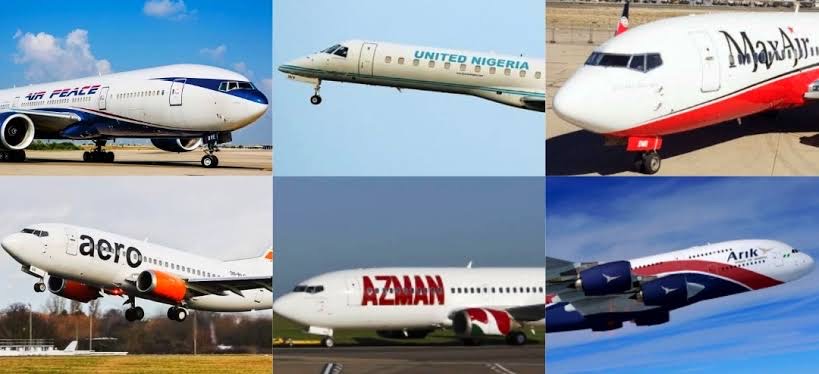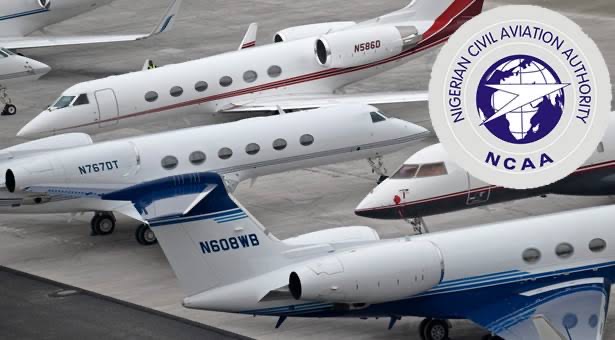Passengers traveling from Lagos to second-category airports such as Ilorin, Akure, Asaba, Benin, Kaduna, Katsina, Sokoto, Ibadan, and Yola have no luxury of choice in which airline they fly with due to the continuing aircraft shortage at Nigerian airports.
Limited aircraft capacity has forced airlines to reduce the number of flights they operate or cease operations on second-category routes and focus on first-category to maximize their economic profits.
In this situation, some airlines have monopoly control over certain routes, limiting passenger choice and eliminating jobs previously created at the airport by multiple airlines.
This also impacts costs for passengers. Last year, the average price of a ticket from Lagos to any of the second category airports was 65,000 naira, but now a one-way economy class ticket from Lagos to any of these destinations costs between 100,000 naira and 300,000 naira.
“The principal implication of having few airlines fly certain routes is that the airline or airlines will determine the price of airfares on these routes and this is against the overall interest of the passenger. No opportunity for price discovery, fair competition, and choice,” Seyi Adewale, chief executive officer of Mainstream Cargo Limited, told Journalists.
“It also implies that if the airline has a technical issue, passengers will be stranded and this will significantly affect their social or business plans or engagements. The airlines, on the other hand, would be happy with this no-competition stance and potentially make ‘supernormal’ profit on these routes.”

Adewale said it is a sad reality that there is no quick fix as the aviation industry generally requires medium to long-term planning.
He said airlines with valid Air Operating Certificates (AOCs) and Air Transport Licenses (ATLs) may need to enter into wet lease agreements with international partners who have the capacity (superior equipment) to quickly deploy two to four aircraft and leverage the resulting profits. Gap. Few planes have had to carry more than one passenger on domestic flights in recent months as Nigerian airlines struggle to reduce their fleets due to high maintenance costs.
Airlines that have sent their aircraft for maintenance are unable to return them due to rising costs caused by a shortage of foreign currency.
According to a review by Journalists, some airlines were forced to ground their aircraft by the Nigerian Civil Aviation Authority (NCAA) as they were unable to send them for maintenance.
In addition, the suspension of the ban on Dana Air, a relatively low-cost carrier with six aircraft, also affected aircraft operating domestically.
Ticket prices have also increased on routes previously served by Dana Air. Reporters’ findings revealed that only a few airlines still operate certain routes.
These second-class airports were once served by more than five airlines, but now most are served by two or three airlines, with flights often irregular.
For example, only one airline offers flights to Anambra Airport on certain dates between September and the first week of October. The cheapest one-way economy class ticket on this route is 116,000 Naira.
Asaba Airport is served by three airlines, their presence has increased competition on the route where tickets sell for as little as 95,000 naira.
Currently, only two airlines operate the Lagos-Owerri route, with ticket prices ranging from 116,000 naira to 300,000 naira.

Only three airlines operate flights from Lagos to Ilorin. One airline charges an average of 100,000 naira, while another charges from 115,000 naira up to 219,000 naira. These airlines do not operate flights to Asaba on the same day.
Three airlines operate regular flights to Benin Airport, with economy tickets from Lagos costing between 110,000 and 170,000 Naira. These airlines do not operate regular flights on this route.
The most competitive route is Lagos-Kano, operated by four airlines. Therefore, tickets cost only between 91,000 and 110,000 Naira, despite the relatively long distance from Lagos. Lagos-Akure is served by two airlines with ticket prices ranging from N130,000 to N260,000.
Lagos-Sokoto no longer has daily flights and only two airlines operate on the few days the route operates. One-way economy ticket prices range from N150,000 to N175,000.
Lagos-Ibadan is currently served by two main airlines with one-way economy ticket prices ranging from N200,000 to N220,000. One airline operates the route but promotional tickets are still at N25,000. There are no daily flights to Kaduna and only one airline currently operates Kaduna with prices ranging from N120,000 to N160,000.
Lagos – Yola is operated by two airlines with prices ranging from N155,500 to N200,000.
Katsina airport does not operate flights from September to early October.
Ibrahim Mshelia, CEO of Westlink Airlines, said the dollar shortage is causing a lot of problems as airlines have no funds and cannot find dollars to pay for aircraft returning from parts and maintenance.
“Most of their fleets are depleted. So, if the fleet is depleted, then people will choose routes that give them more money or routes that are favourable to operate with available airplanes.
“The injury is the delay in getting parts and dollars to pay for parts. The country has to make deliberate policies. These monies need to be made available to carriers because their operations are time-bound and if they don’t get the money on time, a lot of things happen.
“If airlines can’t find dollars to buy at a favourable rate, then it becomes a problem. It is the system that is creating a monopoly for the operators but not the operators creating the monopoly,” Musheria explained.
Olumide Ohunayo, industry analyst and head of research at Zenith Travels, told Journalists that the main impact of fewer airlines serving certain routes is higher airfares, fewer jobs, and poorer service.
“When airlines operate routes, it impacts the number of jobs, both with airlines and other service providers, and the entire airport aviation ecosystem. Productivity goes down if you also consider service providers.
“There is a general decline in all activities within the aviation ecosystem. And when the aviation ecosystem declines, the revenue generated also goes down.” There is no positive benefit to monopoly flights. It is an overall negative, even for airlines that operate such airports, as they may not be able to compete,” Ohunayo explained.
He said Nigeria is an economy prone to runaway inflation, noting that access to foreign currency is affecting businesses as the foreign exchange rate falls against the naira.
“Some things need to be done to reduce the interest rates. Access to FX is the major cost component for airline operators. Also, for the regulators, there is a need to reduce the cost of processing the Air Operating Certificate. Airlines should be allowed to bring in smaller aircraft like 20 to 25 seater aircraft such that the total number of seats should not be more than 100 or 110.
“Once it goes above this, they just go through the stringent regulation with the final commitment attached to it. Let us have lower ones that can come in and operate outside the tripod of Lagos-Abuja-Port Harcourt and operate into different smaller airports, which will help access to these airports,” Ohunayo further stated.































